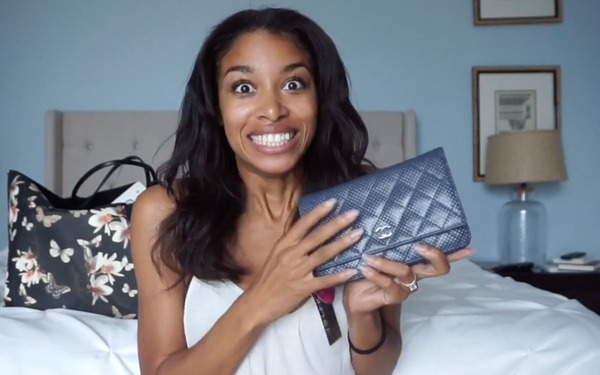
The red-hot resale market just landed
an unlikely booster, with Neiman Marcus announcing it’s buying a minority stake in Fashionphile, a digital darling that sells pre-owned designer handbags. The news comes on the heels of H&M,
the fast-fashion retailer, announcing its own foray into pre-owned fashion.
Neiman Marcus is the first luxury chain to make such an investment and says the move will help it connect with
younger shoppers.
The retailer says there is limited overlap between sellers and buyers in the pre-owned market, and that the deal will let existing customers participate in sales of pre-owned
merchandise “while also reaching new, younger shoppers ahead of their peak spending years.”
“With Fashionphile, we will engage with customers participating in the secondary
market and introduce Neiman Marcus to younger and aspirational shoppers already devoted to luxury brands,” says Geoffroy van Raemdonck, CEO officer, in the announcement.
advertisement
advertisement
Neiman Marcus is
struggling to turn around its fortunes under a heavy debt load. Last month, S&P lowered its credit rating on the Dallas-based retailer.
Neiman Marcus says its research has shown that more
than half its customers already engage in pre-owned luxury items, a market dominated by digital brands like The Real Real and Rent the Runway.
Fashionphile, based in Carlsbad, Calif., has an
inventory of 15,000 bags and accessories.
Digital reseller ThredUp estimates that the market for secondhand clothes is set to double in the next five years, moving from $24 billion last year
to $51 billion in 2023. For the last three years, it’s grown 21 times faster than the broader apparel market. Its strongest appeal is with younger shoppers, with millennials and Gen Z about 2.5
times more likely to buy pre-owned apparel than older shoppers.
That insight is driving resale experimentation at the budget end of the fashion food chain, with H&M announcing that its
& Other Stories brand is developing a test in Sweden, working with Sellpy, the secondhand platform.
The pilot will group used items from & Other Stories in a shop-within-a-shop on the
Sellpy website. While the sales will be managed by Sellpy, H&M says it intends to encourage customers to explore those “pre-loved treasures” through its website and social media.
The experiment makes a nice fit with H&M’s ongoing efforts to promote sustainability. But environmentalists are increasingly singling out the fast-fashion chains like H&M, Zara and
Primark for promoting disposable fashion, a problem that may already be impacting its appeal for environmentally aware young fashionistas.
New research from Washington University in St. Louis
says the overabundance of fast fashion has sparked “an environmental and social justice crisis….From the growth of water-intensive cotton to the release of untreated dyes into local water
sources to worker's low wages and poor working conditions, the environmental and social costs involved in textile manufacturing are widespread."
ThredUp says that at current growth
rates, the resale market is likely to be 1.5 times the size of fast fashion by 2028.